New Members' Guide
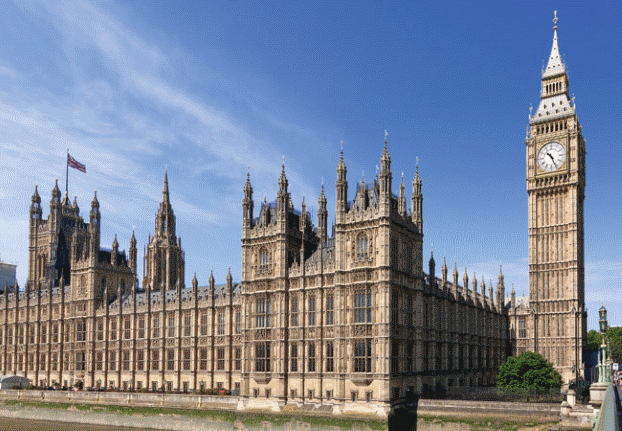
Welcome, new members! This guide will, hopefully, serve to answer all most of your questions.
Moderation
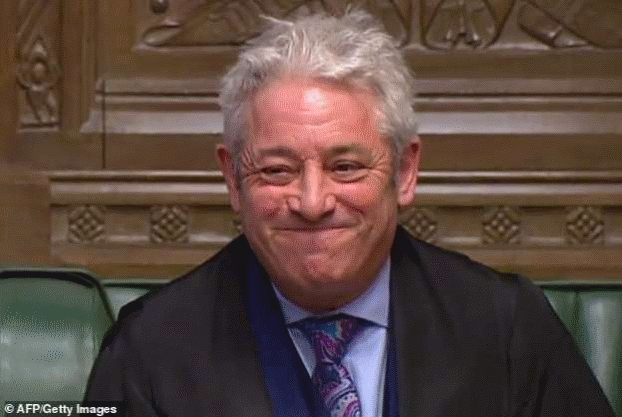
The whole server is overseen by the Speaker of the House. They're the owner of the server, and the person who makes most official announcements. Moderation power, and the power to preside over sessions of Parliament, is jointly held by both the Speaker and the Deputy Speakers. Finally, there is an Advisory Council, which can enact changes to how the server functions. The Council and Deputy Speakers are both democratically elected,[0]admittedly, the Council also has seats reserved for party leaders and the Speaker and the staff team as a whole is referred to as The Speakership.
What's happened since we started

XOMBP diverged from reality on March 17th, 2019. Since then, many changes have occurred in the law and political landscape. You can find a lot of documentation in the legislation archive or our master spreadsheet, but here's a rundown of the major differences:
- The coronavirus pandemic is not canon. This is the only major world event which is not part of the canon. The War in Ukraine is canon.
- There was a second Brexit referendum, wherein Remain narrowly won with 50.5% of the vote. This means Britain is still in the EU.No other changes to the status of the UK within the EU has also occured.
- 16-year-olds and permanent residents can vote, automatic voter registration was enacted, and the Fixed-Term Parliaments Act was repealed.
- China imposed heavy trade restrictions in response to legislation pledging military support to Taiwan. China eventually also embargoed the UK after more pro-Hong Kong and Taiwan legislation was passed, which was settled after the United States and the European Union joined the sanctions.
- British Nationals (Overseas) can settle in the United Kingdom.
- Abortion was legalised in Northern Ireland (but not gay marriage).
- LGBTQ rights have made heavy progress: conversion therapy is outlawed, hate speech based on gender identity is banned, rights for intersex people have been enshrined in law, self-designation for transgender and non-binary people is in place, and polyamorous marriage is now legal.
- MPs and Peers can swear oaths to any religion, and don't have to swear them to the queen.
- The Lords Spiritual was reformed, alongside major efforts to fight anti-semitism.
- The police was heavily reformed, including banning chemical weaponry and decrimializing cannabis. Cannabis has also been fully legalised.
- Increased power for regional areas occured, including more legal jurisidction for Wales and the Regional Development Agencies returned.
- Major steps on combatting climate change have occured, including reforming the national park system and repealing the green belt, banning cars within urban centres by 2035, and the UK has promised to be carbon neutral by 2045.
- The minimum wage was reformed to be controlled by the Bank of England, and a flat rate was introduced.
- Devolution was proposed to Cornwall, but it was rejected in a referendum by about 1,000 votes.
- Parental leave has been extended to both parents for a combined total of 52 weeks.
- A 1% wealth tax has been established on all those earning £500,000.
Political parties

We have many political parties that you can join, ranging from IRL parties like the Conservatives and Labour to more out-there ones made up by people in-sim. You can find the complete list in the #current-parties channel!
You can also stand as an independent, or, if you can convince the Speakership you're significantly different from other parties, start your own party!
Elections
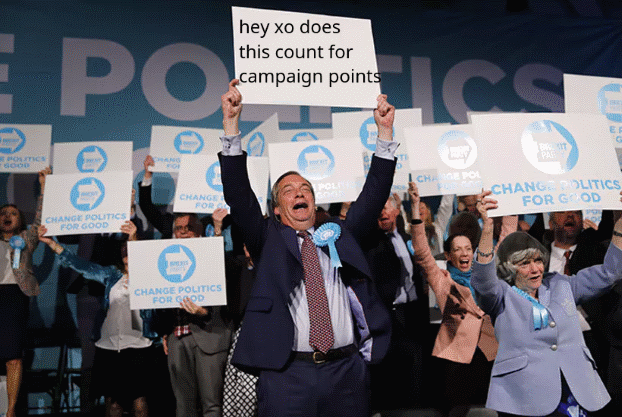
Every 4—6 months or so, a general election is held to determine the seats in the House of Commons. For about a week, candidates and parties campaign their arses off, all while our magical election spreadsheet™ determines who wins based on activity in Parliament, campaigning strength, scandals, and local issues. The final seats are allocated via the mixed-member proportional method, explained in this handy image:
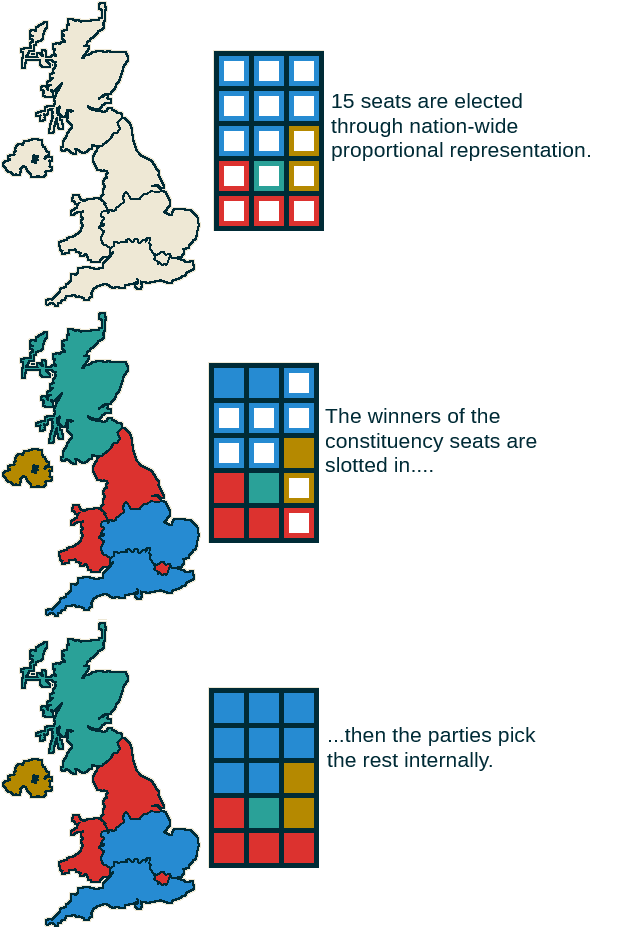
Legislation & business

Legislation comes in 3 categories: bills, motions, and amendments. The purpose and standard format of said categories are laid out below. How this legislation goes through parliament is covered in separate guide.
Bills, known as Acts if they are passed, are the main method of effecting change. If passed, they will become part of the law of the country, so please, for the love of $DEITY, take your time when writing them.
The standard format for bills is as such:
Kill All Cats Bill 2019
A Bill to have all cats killed.Be it enacted by the Queen's most Excellent Majesty, by and with the advice and consent of the Lords Spiritual and Temporal, and Commons, in this present Parliament assembled, and by the authority of the same, as follows:—
1 Kill cats
- Subject to subsection (2), all cats must be killed.
- A person commits an offence if they kill —
- large cats, including —
- lions,
- tigers, and
- pumas,
- dogs, or
- kittens.
- A person guilty of committing an offence under this section is liable—
- on summary conviction, to imprisonment for a term not exceeding 6 months[2]the maximum amount allowed for a summary conviction or a fine not exceeding the statutory maximum or both; or
- on conviction on indictment, to imprisonment for a term not exceeding 5 years.
2 Short title, commencement and extent
- This Act may be cited as the Kill All Cats Act 2019.
- This Act comes into force on the passing of this Act.
- This Act extends to England & Wales.[3]England and Wales are a single legal jurisdiction; an Act cannot be part of the law of only one area. It may, however, be specified that the relevant portions of the Act apply only in England.
Bills not conforming to this format will be rejected.
When writing and submitting a bill, please write it up in Markdown, like so:
# Kill All Cats Bill 2019
A bill to have all cats killed.
Be it enacted by the Queen's most Excellent Majesty,
by and with the advice and consent of the Lords Spiritual
and Temporal, and Commons, in this present Parliament
assembled, and by the authority of the same, as follows:—
## 1 Kill cats
1. Subject to subsection (2), all cats must be killed.
2. A person commits an offence if they kill —
a. large cats, including —
i. lions,
ii. tigers, and
iii. pumas,
b. dogs, or
c. kittens.
3. A person guilty of committing an offence under this section
is liable—
a. on summary conviction, to imprisonment for a term not
exceeding 6 months or a fine not exceeding the
statutory maximum or both; or
b. on conviction on indictment, to imprisonment for a
term not exceeding 5 years.
## 2 Short title, commencement and extent
1. This Act may be cited as the Kill All Cats Act 2019.
2. This Act comes into force on the passing of this Act.
3. This Act extends to England & Wales.
**This bill was written by the Rt Hon. Donald Trump PC,
Member for New York City, as a Private Member’s Bill.**
Motions can be used for things like motions of no confidence, calling general elections, and establishing committees, but the most common type is simply one of the Houses of Parliament urging the government to take action on an issue. The standard format for these motions is as follows:
Motion to appreciate cats
This House recognises that;- Cats are very cute, and should be protected at all costs.
- Killing cats is very bad.
- Repeal all laws that allow killing cats.
- Establish a national program that encourages daily hugging of cats.
Amendments are submitted during the legislative process of a bill, and, like the name suggests, are used to amend a bill. Amendments may not go against the principles set out in the bill's long title; those that do are known as "wrecking amendments". The standard format for amendments is as such:
An amendment to the Cool Cat Bill 2019
- Omit section 3 (Dummy measures)
- In section 4 after subsection (5), insert: “(6) Anyone shall be able to use it.” and renumber the following subsections.
- In section 5(2), omit all instances of “cats”.
- In section 2 at the end, insert “(3) No smoking shall be allowed inside the building.”
- In section 9, omit subsection (7)(c).
- In section 11(2)(b), for “for men only” substitute “for everyone”.
Ministers' Questions aren't legislation as such, but they are a valuable feature of parliament. Every Wednesday, the Prime Minister has to answer questions in the House of Commons; on other weekdays, other ministers are forced to answer.
Parliamentary customs
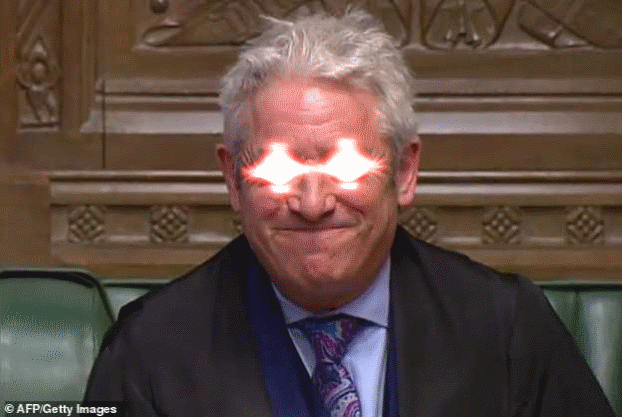
Speeches in the House of Commons are adressed to the Speaker of the House; other MPs may not be referred to by name. The standard format to referring to MPs is:
- The (Right) Honourable[5]"Right Honourable" if current or former Leader of the Opposition / government frontbencher, otherwise just "Honourable" Member/Lady/Gentleman (for
constituency) - My (right) honourable friend (if the MP is a member of one's own party)
- MPs may also be referred to by their titles, e.g. Secretary of State for Transport, the Prime Minister, etc.
Speeches to the House of Lords are instead adressed to the whole house. Example speeches include:
- Mr. Speaker, does the Right Honourable Member for Wales wish to defend his consumption of ice cream with a fork?
- Mr. Speaker, I believe the Shadow Secretary of State for Environment, Food, and Rural Affairs is truly unenlightened in the methods with which he eats his ice cream.
- My Lords, I wish to inquire why the government allocated valuable parliamentary time in the Commons to a debate about ice cream?
In addition, one cannot accuse another member of lying or deliberately misleading the house.